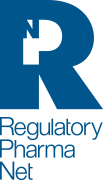Artificial Intelligence (AI) has been a true revolution in many sectors, but perhaps one of the most promising is that of medical devices. From a regulatory perspective, the classification of an AI-based software as a medical device depends on its specific intended use defined by the manufacturer. In general, only software with medical purposes, such as diagnosis, monitoring, or disease prevention, fall under the definition of medical devices.
AI has opened new frontiers in the field of medical devices, improving the accuracy of diagnoses and reducing human errors. This means that diseases can be identified more accurately, enabling more effective treatments. The efficiency of AI-based medical devices translates into shorter access times to care and better quality of healthcare.
There are several successful examples of AI-based medical devices. From assisting in the diagnosis of diseases to suggesting personalized treatment options based on specific patient data, AI has revolutionized medicine. For example, software analyzing radiological data can detect anomalies, while in surgery, surgeons are increasingly assisted by sophisticated devices for delicate procedures.
Moreover, the combined use of wearable devices and artificial intelligence algorithms simplifies the diagnosis of sleep disorders, especially insomnia, without the need for traditional polysomnography electrodes.
The European Union is currently discussing the AI Act, new legislation that will have a significant impact on medical devices containing AI-based software. According to the proposal, these products could be subject to dual regulation, both as medical devices and as AI-containing products. This will result in increased regulatory obligations for all actors involved in the manufacture and commercialization of such devices.
Regulatory Pharma Net (RPN) is available to provide your company with any updates on the medical devices regulatory framework and to assist on all regulatory needs in relation to medical devices including those AI-based.
Feel free to contact us at info@regulatorypharmanet.com




